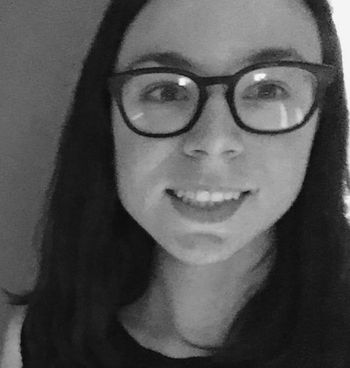Rutgers enlists unpaid students to promote social justice
Rutgers University enlists unpaid students to push “diversity and social justice” onto their fellow peers through educational programming and workshops.
The “Diversity Peer Education” program, launched last fall by the Rutgers Honor College, recruits students and trains them to conduct workshops on topics such as gender, ableism, classism, religion, and privilege.
The program, which will be offered again during the upcoming Fall Semester, vows to help create a more inclusive environment for students in the Honors College by enhancing students’ awareness of these issues.
[RELATED: CU-Boulder to offer ‘social justice living environment’]
Gabrielle Mejia, a rising Junior at the Rutgers Honors College, told Campus Reform that she joined the Diversity Peer Education program last year when it was first launched, explaining that she was motivated by the opportunity to promote the values she cares about to her peers.
“I’ve been there since the very beginning, since the first training,” said Mejia. “I'm a woman of color; I’m the child of immigrants, and while my parents are college-educated[...]they went to college in a different country, so it wasn't really the same thing when I went to college.”
Mejia said that last year’s program started with an initial cohort of 10 Peer Educators, but that several dropped out over the course of the year, which began with weekly trainings for several hours each Friday in the fall and culminated with the Peer Educators presenting workshops to the school community upon request in the spring.
“Even though Rutgers is a really diverse university, for me it really didn't feel diverse at the Honors College, so when they offered me an opportunity to [promote] the issues that I find important, I definitely wanted to be a part of it,” Mejia remarked.
In contrast to similar initiatives at other schools, such as the University of Arizona’s “Social Justice Advocates” program, Peer Educators at Rutgers are not compensated for their efforts beyond access to free trainings.
[RELATED: University paying students to be ‘Social Justice Advocates’]
The inaugural group of Peer Educators was only able to facilitate one workshop last year—a screening of the film Zootopia with discussion of the various forms of discrimination depicted therein—but Mejia said that while the program “started off small,” this year’s Peer Educators intend to offer a much wider array of programming.
The new workshops will fall under five categories—“Ableism,” “Gender,” “Classism,” “Religion,” and “Exploring Identity”—each of which explores some form of discrimination or inequality.
“Classism” workshops, for instance, will focus on “the unequal distribution of wealth in American society,” while the “Exploring Identity” programming “will allow participants to explore the key aspects of their identity and how these important aspects interact with other social systems, privilege, and disadvantage.”
The workshops will be available upon request for various members of the campus community, such as Residence Assistants and Community Liaisons, and Mejia added that the Peer Educators might even offer certain workshops during the next freshmen orientation, though she made clear that those plans remain tentative.
[RELATED: UCLA lectures freshmen on inclusive language, social justice]
While some of the students who participated in the program last year do not plan to continue in the fall, Mejia said she “definitely” plans on signing up again, and even plans to help train any new recruits.
"We're going to be accepting more applications soon, and I'll be helping to train the younger ones,” she noted. "It's definitely a labor of love. We don't get paid or anything. We just want to make the Honors College better.”
Rutgers University did not respond to a request for comment from Campus Reform.
Follow the author of this article on Twitter: @Toni_Airaksinen

